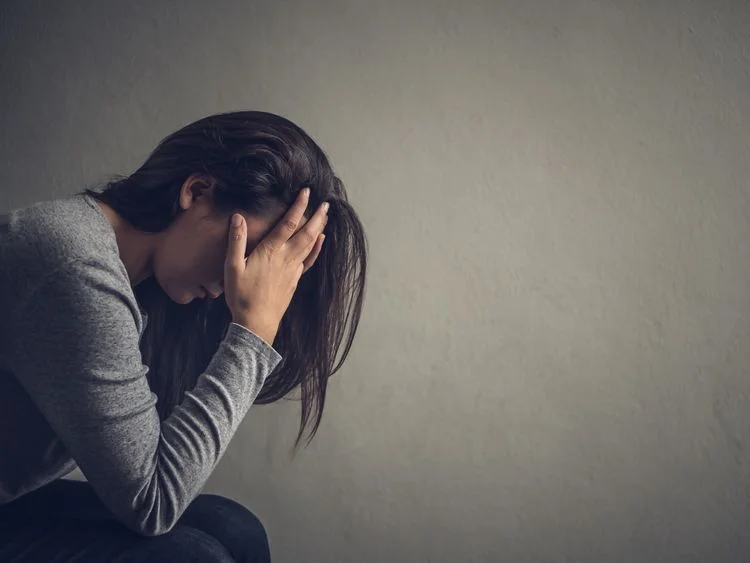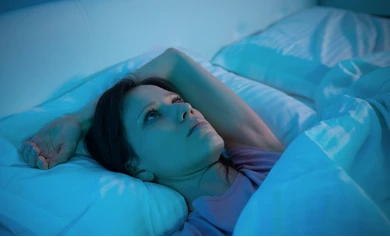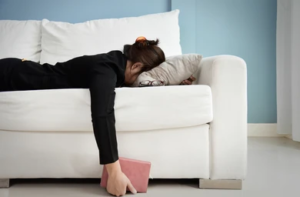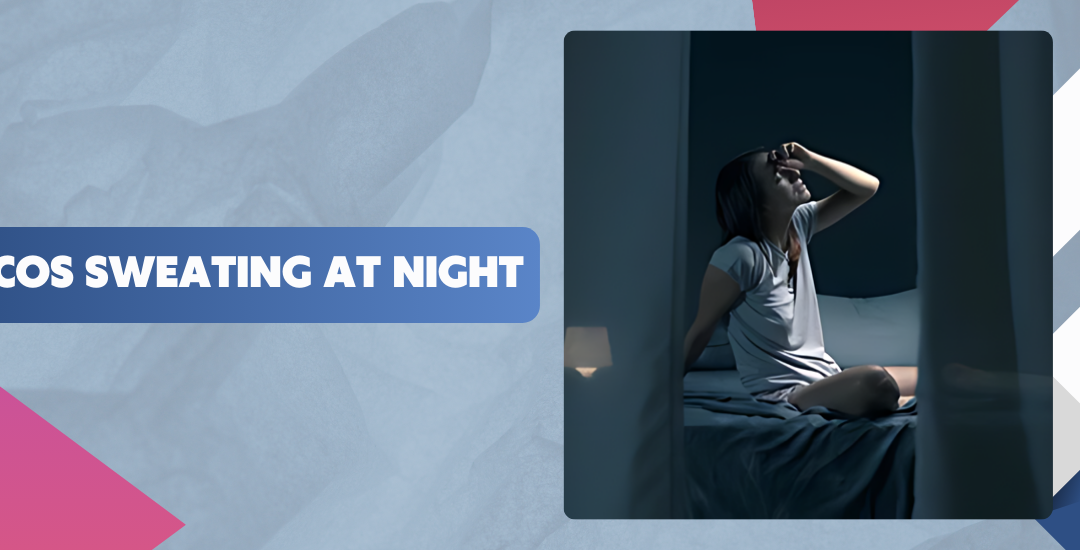Today, we will delve into a common but often misunderstood symptom of PCOS—night sweating. Many women with PCOS find themselves tossing and turning, waking up drenched despite the coolness of the night.
Whether you’re grappling with this issue yourself or just seeking to understand more about PCOS, you’ve come to the right place. Join us as we navigate the challenges of PCOS sweating at night, offering insights, solutions, and hope for better nights ahead.
Dr. Shweta Shah, a gynecologist in Andheri, sheds light on this nocturnal inconvenience.
Explore its causes, impacts, and, most importantly, strategies for management.
With the right doctor and treatment plan, you can address this issue effectively. Contact an expert to discuss your condition.
Ever wondered why you wake up drenched in sweat despite the coolness of the night? Let’s dive into the common yet misunderstood symptom of PCOS—night sweating.
A brief overview: PCOS sweating at night

PCOS sweating at night is a common symptom among women with PCOS. The hormone imbalances in your body cause this. Particularly imbalances in levels of androgen. This affects your body’s temperature regulation. Night sweating leads to disrupted sleep. This can reduce your quality of life.
Ever wondered why you wake up drenched in sweat despite the coolness of the night? Let’s dive into the common yet misunderstood symptom of PCOS—night sweating.
How common is PCOS sweating at night?
 Night sweats and PCOS in women happen because their hormones are out of balance. This can mess with body temperature. Managing stress, keeping cool at night, and living a healthy lifestyle can help reduce PCOS sweating at night. Sweating at night due to PCOs is common. However, not all women with PCOS will experience this, but those who do have options to improve their sleep and comfort.
Night sweats and PCOS in women happen because their hormones are out of balance. This can mess with body temperature. Managing stress, keeping cool at night, and living a healthy lifestyle can help reduce PCOS sweating at night. Sweating at night due to PCOs is common. However, not all women with PCOS will experience this, but those who do have options to improve their sleep and comfort.
Are you also struggling with night sweats and PCOS? Contact Dr. Shweta Shah today and get personalized advice on your condition.
Want to know why hormonal imbalances can lead to night sweats in women with PCOS? Let’s uncover the causes and risks.
Causes and risk factors of PCOS sweating at night

Night sweats in women with PCOS can happen because their hormone levels are not balanced. This makes their bodies overheat at night. Stress, weight issues, and sleep problems like sleep apnea also play a part in making night sweats worse. Fixing these issues, like eating healthier, exercising, and managing stress, can help reduce night sweats and PCOS.
Ready to improve your sleep and manage your PCOS symptoms?
Did you know that PCOS sweating at night can have effects beyond just discomfort? Let’s discover the potential impacts and complications of this symptom.
Effects and complications of PCOS sweating at night

Polycystic Ovary Syndrome sweating can make sleeping hard. It can affect your daily life. It can have various effects and complications as well:
- Disrupted sleep: Night sweats can lead to frequent awakenings during the night, disrupting the sleep cycle and causing fatigue during the day.
- Reduced quality of life: Persistent night sweats can affect overall well-being, leading to decreased energy levels, irritability, and difficulty concentrating.
- Skin irritation: Excessive sweating can cause skin irritation and discomfort, particularly if sweat remains on the skin for extended periods.
- Increased risk of infections:Prolonged moisture from night sweats can create a breeding ground for bacteria and fungi, increasing the risk of skin infections such as fungal infections or folliculitis.
- Impact on mental health: Chronic night sweats can contribute to feelings of anxiety, depression, or stress, affecting mental health and emotional well-being.
- Relationship strain: Sleep disturbances caused by night sweats may lead to strain in interpersonal relationships, particularly if partners are also affected by disrupted sleep patterns.
- Compromised fertility: PCOS itself can impact fertility, and the added stress of night sweats may exacerbate fertility challenges for women trying to conceive.
- Hormonal imbalance: Night sweats may further disrupt hormonal balance in women with PCOS, potentially worsening other symptoms such as irregular periods, acne, or weight gain.
For better management, visit a gynecologist for more advice on personalized PCOS night sweats treatment.
Struggling with PCOS sweating at night? Here are some simple yet effective strategies to help you manage this common symptom and improve your sleep quality.
How to manage PCOS sweating at night?

To manage night sweating with PCOS, try these simple steps:
- Keep a cool sleeping environment by using fans or adjusting the thermostat.
- Choose lightweight, breathable sleepwear made from natural fabrics.
- Practice good sleep hygiene, including maintaining a consistent sleep schedule and creating a relaxing bedtime routine.
- Follow a balanced diet and maintain a healthy weight to help regulate hormones.
- Engage in regular exercise to reduce stress and improve overall health.
- Consider relaxation techniques such as deep breathing exercises or meditation before bedtime to promote better sleep.
- Stay hydrated throughout the day, but limit fluids close to bedtime to minimize nighttime sweating.
- Consult with a healthcare provider to discuss potential medications or hormonal treatments to manage PCOS symptoms, including night sweats.
Wondering how you can prevent PCOS sweating at night? Let’s explore some proactive steps you can take.
How to prevent PCOS sweating at night?

You can try these strategies to prevent PCOS sweating at night:
- Maintain a cool sleep environment by using fans or air conditioning.
- Choose breathable bedding and sleepwear made from natural fibers.
- Follow a balanced diet of fruits, vegetables, lean proteins, and whole grains to help regulate hormones.
- Engage in regular exercise to manage weight and reduce stress levels.
- Practice stress-reduction techniques such as deep breathing, meditation, or yoga before bedtime.
- Avoid consuming caffeine and spicy foods close to bedtime.
- Stay hydrated throughout the day, but limit fluid intake before bedtime to reduce the likelihood of nighttime sweating.
- Consider talking to your healthcare provider about medication or hormonal treatments to help manage PCOS symptoms, including night sweats.
Ready to take control of your PCOS symptoms and improve your quality of life? Let’s wrap up our exploration of PCOS sweating at night with some key takeaways and actionable steps.
Conclusion
disrupting sleep and comfort. Managing through a cool sleep environment, diet, exercise, and stress reduction can greatly improve symptoms and well-being. Understanding these factors and taking proactive steps are crucial for effective management.
For more in-depth discussions and tips on managing PCOS symptoms, visit a specialist.
Frequently Asked Questions
How do you stop night sweats from PCOS?
To stop night sweats from PCOS, you can try keeping your bedroom cool. Wear light clothing. Manage stress, and maintain a healthy lifestyle. If the problem persists, consult a healthcare professional for personalized advice.
What time should I sleep with PCOS?
With PCOS, aim for a consistent sleep schedule. Ideally going to bed and waking up at the same time each day. Getting enough sleep is crucial for managing symptoms.
Why does PCOS affect sleep?
PCOS can affect sleep due to hormonal imbalances. It can lead to sleep apnea and night sweats.

